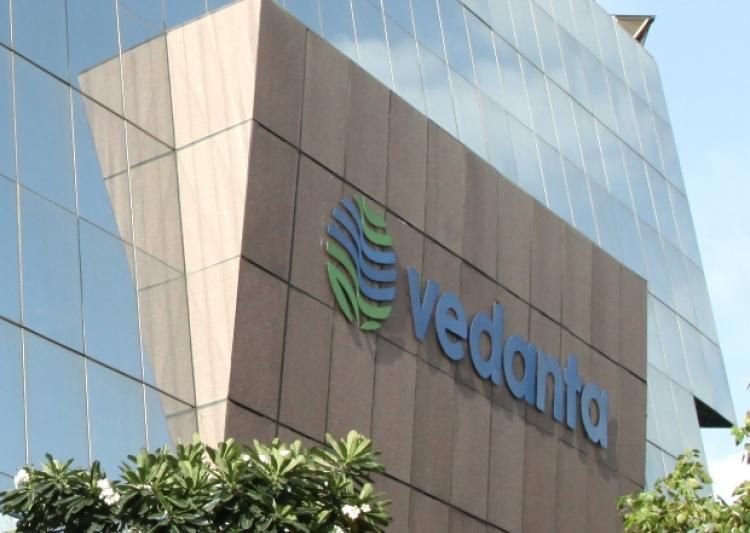Vedanta asked to shut down
May 29, 2018 | Expert Insights

Sterlite Copper, a subsidiary of multinational London-based mining company Vedanta Resources, has been asked to shut down operations in Thoothukudi (Tuticorin), Tamil Nadu, after environmental protests by local citizens. Police killed 13 protesters last week.
The Sterlite plant is one of India’s two largest copper smelters, with an annual production of over 400,000 tonnes.
Background
Vedanta Resources is a metals and mining company established in Mumbai in 1976 by Anil Agarwal. The natural resource company primarily deals in mining and manufacturing copper and aluminium. It also has investments in power, silver, zinc, lead, and iron ore. Currently headquartered in London, the company has mining operations in India, Australia, and Zambia. The company’s Indian facilities include a custom smelter, a refinery, a phosphoric acid plant, a sulphuric acid plant, captive power plants, copper smelting and copper rod plants. Sterlite Industries is a subsidiary of Vedanta Resources based in Mumbai. It primarily engages in copper mining in Thoothukudi, India.
Vedanta may be best known in India for its infamous Niyamgiri Hills project in the state of Odisha. The Odisha government supported Vedanta’s bid to mine bauxite in the hills for its neighbouring aluminium plant. The hills were also home to a tribal population of 8,000. The company was met with widespread protests and resistance from the Dongaria Kondh tribe and civil society groups. Its bid was turned down by the Supreme Court and the Ministry of Environmental and Forest. Vedanta’s proposal was found to be in violation of the Forest Rights Act, the Forest Conservation Act, the Environment Protection Act, and the Panchayats (Extension to Scheduled Areas) Act.
Vedanta has been repeatedly fined for breaching environmental regulation. In 2012, the Goa State Pollution Control Board asked the company to stop its coke mining operations at Navelim in Bicholim taluka in Goa due to air quality concerns. In 2015, the Zambian Supreme Court ruled that a spillage from Vedanta’s Konkola Copper Mines had severely polluted the Mushishima stream in Chingola region of Zambia. Last year, the affected villagers won the right to sue the company. In 2017, Vedanta shut down operations in a 1,980-megawatt thermal power plant in Punjab after a fire. The plant had been previously hit with a fine of Rs. 500,000 for flouting environmental norms.
In 2014, it was found that India’s two major political parties, the Bharatiya Janata Party (BJP) and the Congress were guilty of accepting funds from Vedanta Resources between 2004 and 2012. At the time, foreign funding was illegal.
Analysis
The Tamil Nadu government has ordered the shutdown of the Sterlite Copper plant in Thoothukudi. “Under Sections 18(1)(b) of the Water Act 1974, in the larger public interest, the government endorse the closure direction of the Tamil Nadu Pollution Control Board (TNPCB) and also direct the TNPCB to seal the unit and close the plant permanently,” the official order read.
Protests against the smelter have been going on for years, intensifying in recent months after the company announced plans to expand the plant. There have been a number of reports that the plant was breaching environmental standards. Residents claim that the pollution affects health and effluents pose a risk to the local fishing industry. The protests turned violent last week, and 13 people were killed by local police.
The site had already been shut for over 50 days. Last week, the Madras High Court had ordered the plant to stop its expansion plans and stop operations until a public hearing was called. Electricity supply to the plant was also cut. After recent events, British Labour Party Politician John McDonnell also called to remove Vedanta from the London Stock Exchange.
Chief Executive of Sterlite P Ramnath, told Financial Times that the company would “study the order and decide the future course”, adding that permanent closure would be a “tragedy.” Ramnath predicted “a huge impact for the customers, for the state, and for the nation”. Sterlite called the closure an “unfortunate development,” and added that the company had “operated the plant for over 22 years in [a] most transparent and sustainable way, contributing to the Tuticorin and the state’s socio-economic development.” Vedanta CEO Agarwal has previously insinuated that there are external forces invested in keeping India reliant on foreign imports.
Vedanta stock has fallen a total of 24% this year. The Sterlite plant had an annual production capacity of 400,000 tonnes, and directly employed approximately 3,500 workers including 2,500 contract workers. Vedanta currently holds a 36% market share in India’s copper industry. Independent investment information and credit rating agency ICRA noted that a copper shortage may be imminent. “So far our capacities were large enough for our total requirement, so we were a net exporter,” Senior Vice President Senior Vice President said. “Now, with no new capacities coming in and if almost 40 percent goes out on top of that, we will be in a deficit.”
However, some experts believe that the order may not hold in higher courts. “(The order) is a knee-jerk reaction,” former Madras High Court Judge K Chandru told Economic Times.
Assessment
Our assessment is that Vedanta is likely to make an appeal. If the shutdown is permanent, it could pose a major setback for the organisation. We believe that the closure of a main copper plant could lead to a rise in copper imports in the long term. It could also benefit domestic rival Hindalco Industries.
Furthermore, as stated previously, we feel that environmental issues such as pollution have very real consequences on the quality of life and livelihood of local populations. Industries must adhere to local environmental regulations.








Comments